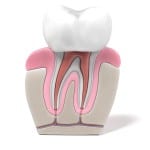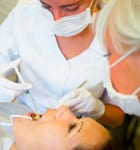 Sometimes, traditional dental implants are not suitable for patients due to a lack of strong tissue in the jawbone. If there isn’t enough dense jaw bone tissue, the implant may fail. It is possible to carry out bone grafting, but another option that may be recommended is mini implants. As you may have guessed from the name, mini implants are smaller versions of traditional implants. They are often a viable solution for patients who have been advised against having standard implants.
Sometimes, traditional dental implants are not suitable for patients due to a lack of strong tissue in the jawbone. If there isn’t enough dense jaw bone tissue, the implant may fail. It is possible to carry out bone grafting, but another option that may be recommended is mini implants. As you may have guessed from the name, mini implants are smaller versions of traditional implants. They are often a viable solution for patients who have been advised against having standard implants.
What exactly are mini implants?
Dental implants are small titanium rods, which are similar to screws. They are implanted into sockets in the jaw bone and their role is to act as a new root. Once the artificial root has integrated into the bone tissue, a new tooth can be attached. The tooth crown is replaced by a crown, a bridge or a denture. Mini implants are essentially the same as traditional implants, but they are smaller, and that makes them easier to tolerate. If you don’t have dense tissue in the jaw bone, it may not be possible for your jaw to support a standard implant, but a mini implant may represent a brilliant alternative.
Mini implants are most commonly used to support a denture, and they can offer increased stability, improved functionality and amazing aesthetics. With a normal denture, the appliance is held by the natural suction of the gums, but with implants, the denture is stabilised by artificial roots. This means that there is no risk of the denture coming loose and you can enjoy complete peace of mind. It also enhances the strength of the denture, so you don’t need to worry about changing your diet.
If you’d like to find out more about mini implants, or you’re keen to see if you’re a viable candidate for treatment, get in touch with us today!










